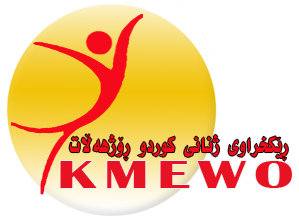Banaz Mahmoud’s honour killing in April 2006 reaffirmed the existence of honour-based violence in the UK. KMEWO and the Middle East Centre for Women’s Rights (MECWR) organised a public meeting to address the lack of appropriate support for women fleeing domestic violence from communities that legitimise violence against women through a discourse around honour. The meeting resulted in a coalition of black, minority and ethnic women’s organisations coming together to form the Combating Honour-based Violence Forum.
Forum members have worked closely with key players such as the police, social services, housing, health authorities and politicians to enhance the awareness of “honour” based violence and the last two years the Forum has become a strong campaigning voice against violence and crimes committed under the name of so-called “honour”.
The forum organises 6 meetings a year. There are seven full members of the Forum:
- Middle East Centre for Women’s Rights
- Southall Black Sisters
- Kurdistan Refugee Women’s Organisation
- Iranian and Kurdish Women’s Rights Organisation
- FORWARD
- ASHIANA Network
- Newham Asian Women’s Project
- IMECE Turkish Speaking Women’s Group
- IMKAAN
- EAVES “Housing for Women”
- Iraqi Women League and one associate members
- Women Living under Muslim Laws
CHBVF Activities:
The CHBVF has continued to combat the issue of honour-based violence (HBV) in the UK. The specific activities of the Forum throughout the past year are listed below.
- The Forum continually updated its members on the progress of the trial involving the death of Banaz Babakir Agha. The Forum closely monitored the progress of the trial, including attendance at court hearings.
- A press statement was released after the final hearing of the Banaz trial. Members of the Forum were contacted for comments on the case by the media and its views were shared in the national press.
- The Forum organised a remembrance service for Banaz on the 26th of June 2007 that commemorated Banaz’s life and expressed concern about the lack of an appropriate response to the threat to her life. Chief Police Officers, Officers from Crime Prosecution Services and members from organisations such as Amnesty International and Rights of Women attended and spoke at the meeting that followed the service.
- A meeting was organised in July 2007 between the Forum and Commander Steve Allen, the national lead on HBV within the Metropolitan Police. The purpose of this meeting was to consult with grassroots black and minority ethnic women organisations on improving the police response to potential victims of HBV, especially after the obvious shortfalls in response to Banaz Mahmoud’s pleas for help.
- The Forum has developed a positive relationship with the Metropolitan Police in order to find concrete and practical ways to address the issue of honour-based violence in the UK.
- Members of the Forum participated in the internal enquiry organised by the Independent Police Complaints Commission to investigate the shortfalls of the Metropolitan Police in relation to the murder of Banaz.
Achievements:
- The Forum has given a stronger voice to black, minority ethnic and refugee women’s organisation and has improved communication and networking amongst many women’s organisations and statutory bodies such as the Metropolitan police, CPS and IPCC.
- Improved referrals and signposting amongst women’s organisations to help potential victims to find ways of leaving violent situations and has assisted the Metropolitan Police in improving their response to potential victims of HBV.
- The Forum has developed and agreed on terms of reference.
- The Forum identified its membership criteria and is now calling for new members to join.
Future Plans:
The Forum is empowered by its accomplishments of the past year. We look forward to next year’s work and the betterment of the both the Forum itself and the lives of those affected by honour-based violence.
Our future goals are as follows:
- To continue to raise awareness of honour- based violence.
- To continue to lobby for the adoption of coherent good practices guidelines by professionals working with vulnerable women. There are currently a lack appropriate risk indicators to identify vulnerable women’s risk of HBV face among the police and this is a big obstacle to the safety of women affected by HBV.
- To continue to have regular meetings with the Home Office, Metropolitan Police, the CPS and other statutory service providers to influence good practice in services for women and to enhance the awareness of HBV.
- To strengthen co-operation with schools and local education authorities in order to raise awareness of escape routes for young people at risk of forced marriage or other forms of HBV.
- To produce written materials, including posters and flyers in different languages to raise awareness about HBV and to ensure that women at risk of HBV are aware of the services available to them.
